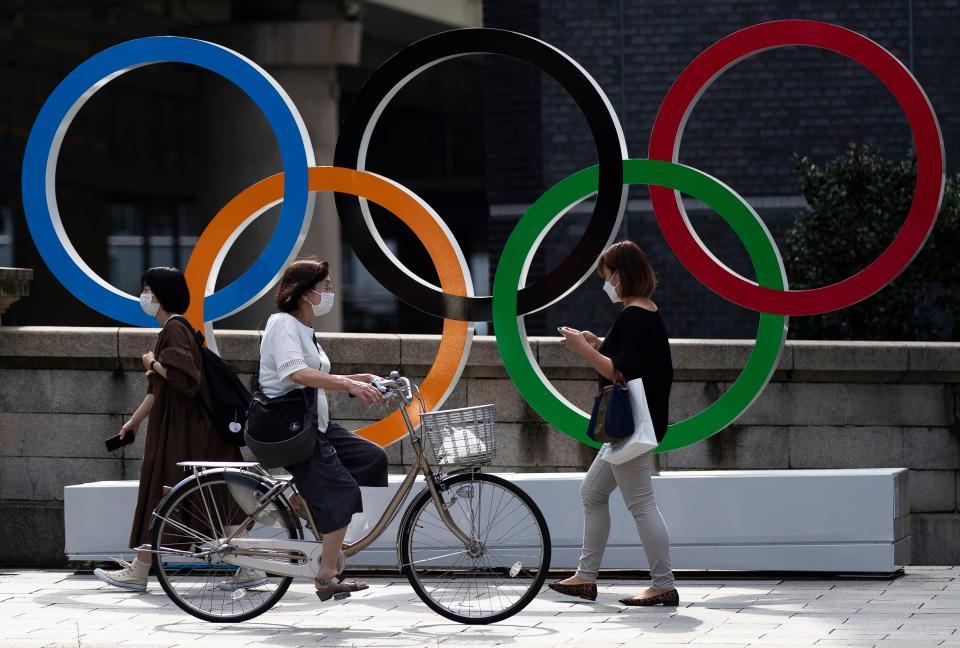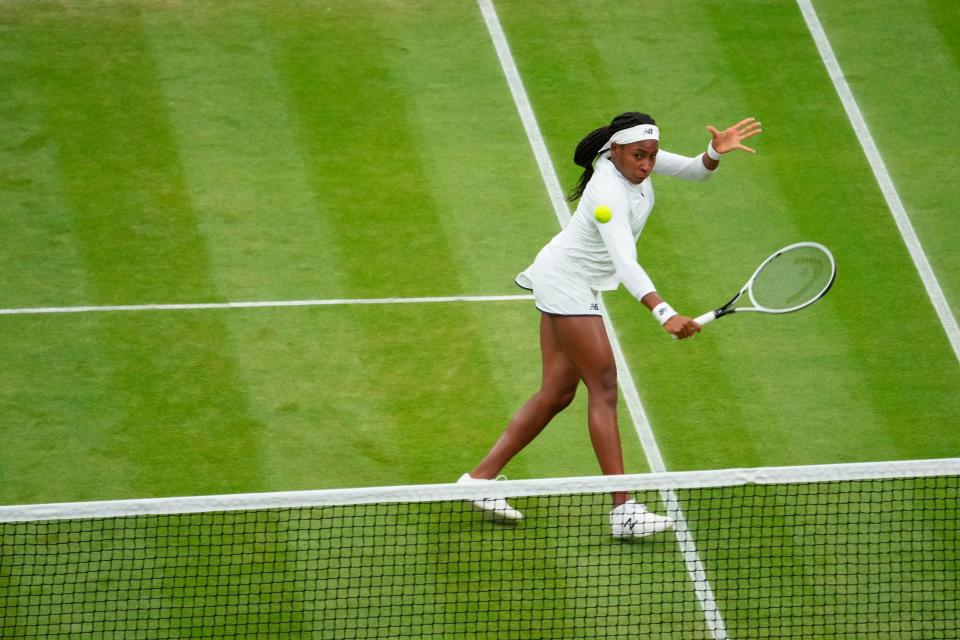Tokyo Olympics: Why I’m dreading watching this train wreck on TV
The Olympic Games used to be must-see TV. Now they're the TV I'd most like to see removed from the schedule.
It's no secret that the rescheduled Tokyo Olympics, delayed a year due to COVID-19, are controversial. Polls in May suggested 83% of Japanese people wanted the Olympics canceled. The country is under a state of emergency due to the continued spread of the virus and the delta variant. No fans will be allowed in the stands. Positive COVID-19 tests have popped up in the Olympic Village as athletes arrive. Yet the show goes on: The opening ceremony airs Friday on NBC (live, 6:55 a.m. EDT/3:55 a.m. PDT, with an abridged replay at 7:30 p.m. EDT/4:30 p.m. PDT).
The Olympics have also come under fire after Black female athletes, including Sha'Carri Richardson and Brianna McNeal, were barred from competition, the former for a positive marijuana test and the latter for a missed drug test after an abortion. The Olympic organization also recently outlawed swim caps designed to fit natural Black hair. Two female teenagers from Namibia were banned from select track events because of natural testosterone levels.

As a TV critic, I love the televised spectacle of the Olympics. But in the mess of 2021, every piece of bad press about the Games makes watching them a tougher sell. There is no ad NBC can air that can somehow morph them into the unifying, heart-pounding TV they usually are. There is no joy, no worldwide unity nor spirit of healthy competition this year. There is only fear and anticlimax followed by what are sure to be sad, silent arenas where gymnasts do backflips. The Olympics are bound to be bad TV, and I have no interest in tuning in.
Especially in the age of warring streaming services and too much TV, few televised moments unify our nation, and sports are at the top of the list. Usually, the Olympics bring much of our disparate population together to cheer on Team USA for a few weeks. The games can create unforgettable stories – think of McKayla Maroney's silver medal in 2012, Michael Phelps' record gold medals in 2008, and Kerri Strug injuring her ankle on the vault in 1996 as the Magnificent Seven took home the gold.
These are culturally defining moments that make for excellent television, especially with the exclamations of announcers, the careful cuts and camera angles to enhance the drama and the reactions of an ecstatic (or livid) crowd.
The lack of an audience is the biggest hurdle NBC has to contend with to engage fans at home. Most sports leagues have had seasons without fans due to the pandemic, with varying degrees of success. But as COVID-19 restrictions eased in the U.S. this summer, there is no mistaking how a crowd of spectators makes sports much more engaging and thrilling. They are more than window dressing on TV; they cue the emotions of the viewing audience and help save awkward moments. Sitcom studio laughter is a classic device for a reason.
There is also the possibility that in addition to lacking fans, the games might lack more athletes. U.S. tennis player Coco Gauff pulled out this week due to a positive COVID-19 test. Brian McCloskey, chair of an independent panel of experts advising the International Olympic Committee on COVID-19, told USA TODAY's Christine Brennan that he thinks it's "possible" that contact tracing could lead to more athletes being benched.

I don't discount the work of the many athletes who have been training for years for their shot at gold. And I certainly don't look on my friends and family who are excited to watch the games with a sneer of moral superiority. I just cannot muster any level of enthusiasm to watch programming that might spread a deadly disease and has forced talented women of color from its ranks. How much can I cheer when I think about the deadly droplets of virus that shouting can expel?
Near the height of the winter surge of COVID-19 cases in the U.S. last February, Super Bowl LV was held in Tampa, Florida. Despite virus precautions, the producers of the event and CBS' broadcast pretended the football game of the year would proceed without incident. Watching it at home, I was horribly anxious. How close together are the fans in the stands, I wondered as I tried to enjoy The Weeknd's halftime show? Why don't I see more masks? Will there be a surge in Tampa after this game?
It's that dread and unease that have dampened the Tokyo Olympics before they even begin. Maybe I'm wrong; maybe NBC's producers are smart and savvy enough to pull this thing off with an entertaining flourish. Friday's opening ceremony is an important test. There is certainly enough money tied up in the games that NBC, the IOC and everyone else involved will try their best.
But I doubt they will succeed. The pandemic Olympics are likely going to be much like our pandemic holidays, birthdays and weddings: disappointing, awkward and a placeholder for what we really want.
More: 22 hours and a very important vial of spit: One Olympic reporter's journey to Tokyo
This article originally appeared on USA TODAY: Tokyo Olympics 2021: Why I’m dreading watching this train wreck on TV

